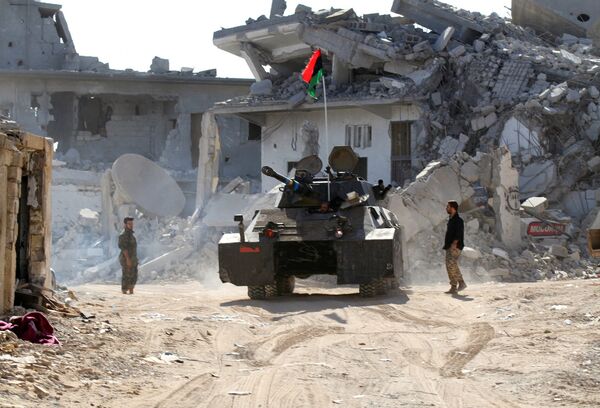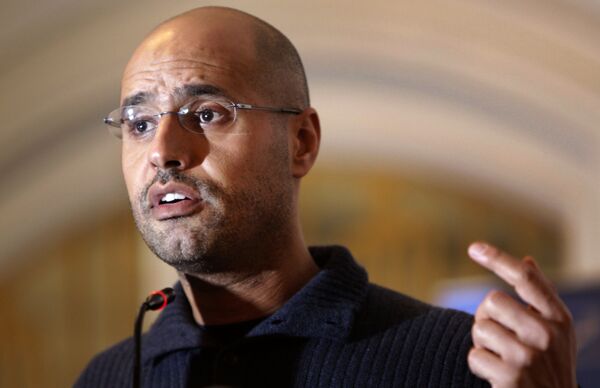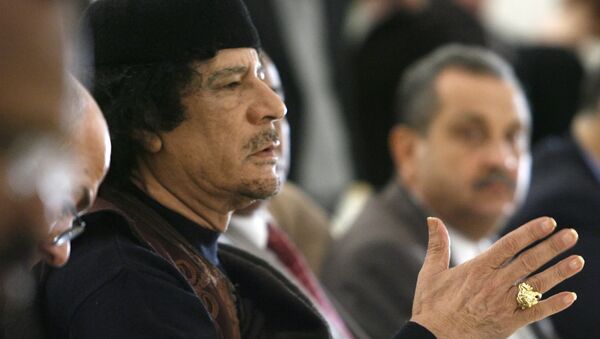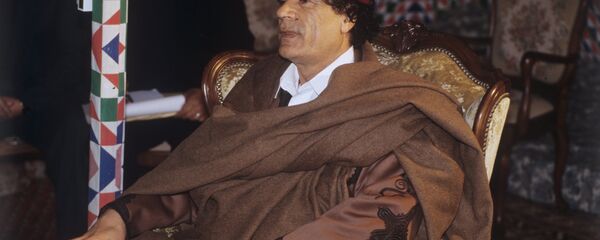The journalist quotes Tahar Dehech, a former official of the Gaddafi government, who had managed to survive the catastrophe of the Libyan Civil War of 2011. The former official is a co-founder of the Supreme Council of the Libyan Tribes and Cities. Currently, he is gathering supporters under the Jamahiriya banner.
Dehech told RIA Novosti that he had experienced first-hand what it's like to be suppressed by Gaddafi's rivals and their US and European backers. He revealed that the Western powers' troops directly took part in ground operations in Libya aimed at toppling Gaddafi's government.
In 2011 Dehech was captured by Libyan insurgents with the assistance of the French intelligence services. The captive was tortured brutally. Fortunately, Dehech managed to escape; in 2013 he filed a lawsuit in the French court accusing the government of France of having a hand in his imprisonment and torture. Although the court accepted his appeal the legal proceedings are still pending.
"The trial is still going on, and no final decision was made," Dehech said, stressing that his visa was annulled by the French government soon after the trial began.

"Today, Tahar Dehech works in the tribal council, which set an objective of reviving the Jamahiriya. According to Franck Pucciarelli, the Council spokesman, the number of supporters of the deposed Libyan leader amounts to about 20 thousand people in Libya and as many abroad, in exile. Meanwhile, Gaddafists have no access to ports and oil, therefore their influence is limited," Gashkov elaborated.
The journalist noted that the Jamahiriya proponents pin their hopes on the population of the southwestern Libyan region of Fezzan, where Gaddafi's loyalist General Ali Kana is drumming up support.
Gaddafi's family members maintain continuity of the deposed Libyan leader's policies.
"By the decision of the Council, Muammar Gaddafi's son Saif al-Islam was recognized as its general representative, while the Colonel's daughter Aisha [was appointed] as a representative for international affairs," Gashkov wrote.
Citing French magazine Le Point, the journalist specified that in 2017 Saif al-Islam Gaddafi, who was earlier captured by one of the Libyan militant groups, gained his freedom. At the same time, the European Union lifted its sanctions against Aisha Gaddafi.

In his interview with RIA Novosti Pucciarelli also insisted that Saif al-Islam had managed to escape.
Meanwhile, Libya remains a war-torn country engulfed by terrorism and insurgency. Remarkably, Gaddafists have not aligned themselves either with Field Marshal Khalifa Haftar, the head of the Libyan National Army, or Fayez Mustafa Al-Sarraj, the Chairman of the Presidential Council of Libya and Prime Minister of the Government of National Accord of Libya. In the eyes of Gaddafists both lack the necessary resources to unite the country.
To add to the controversy, Al-Sarraj was not elected by the Libyans, Pucciarelli highlighted, adding that currently, the prime minister enjoys the Muslim Brotherhood's support in the country.
"As for Haftar, he is regarded as a man defending American interests," Pucciarelli told RIA Novosti, "Haftar's forces consist of former Gaddafi army officers, but they are interested only in obtaining weapons to fight against Islamists."
Gashkov noted that the Jamahiriya supporters present themselves as the "third force" which considers the Libyans' tribal self-organization as the major vital force of the country.
"The tribe in Libya is a kind of a social umbrella, our hope for security," Dehech explained.
Gaddafists also call attention to the fact that their movement is a secular one, not a religious. According to them, politics should be free of either moderate or radical Islamism.
Only time will tell whether the Jamahiriya proponents' strategy will prove efficient, Gashkov concluded.



